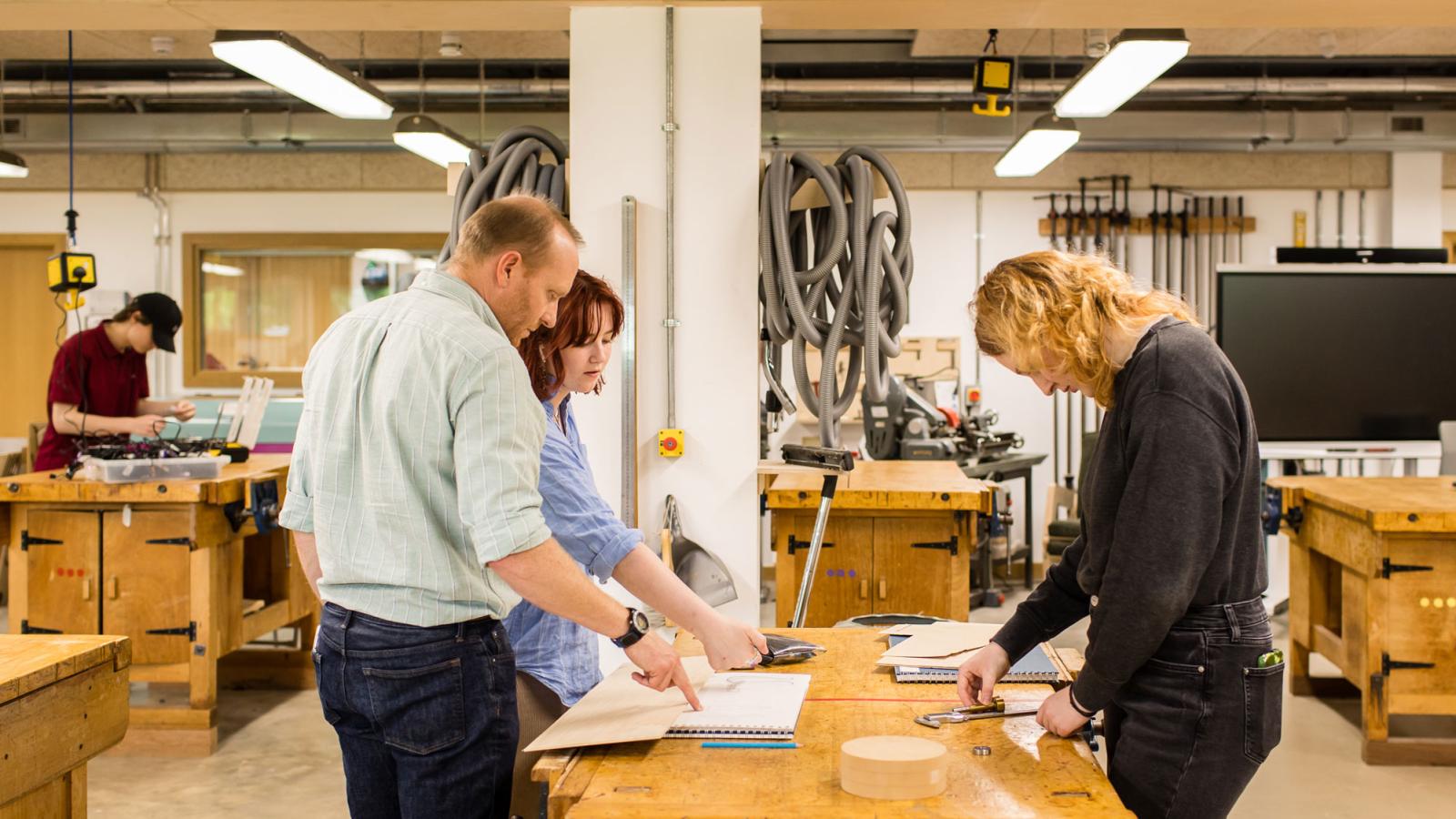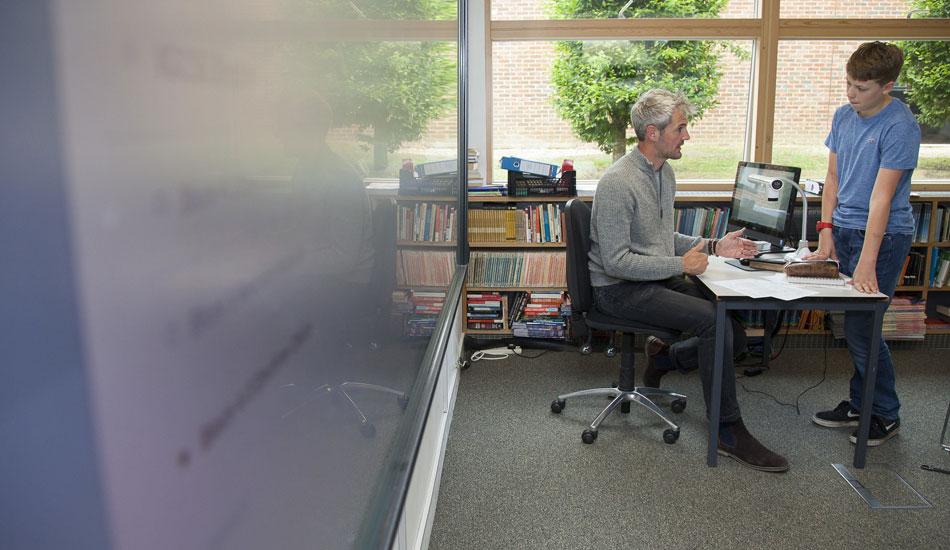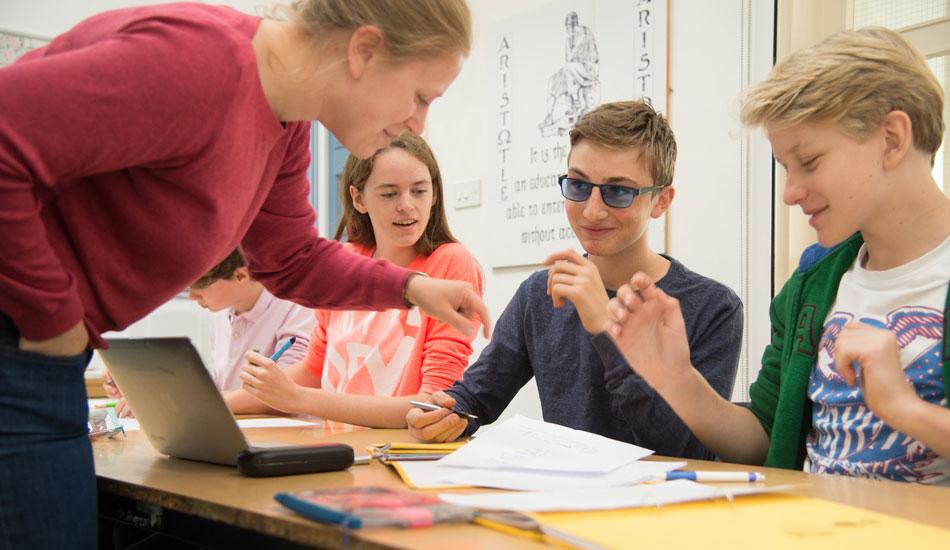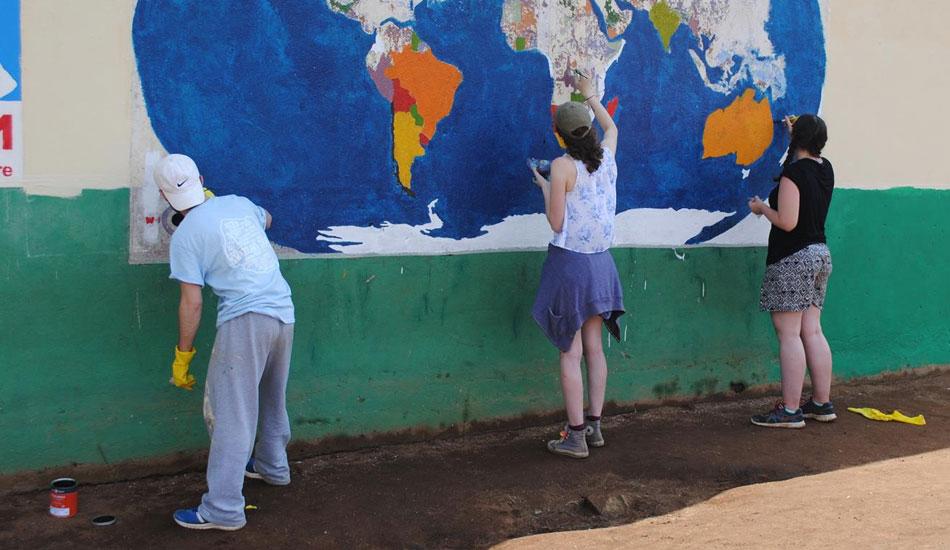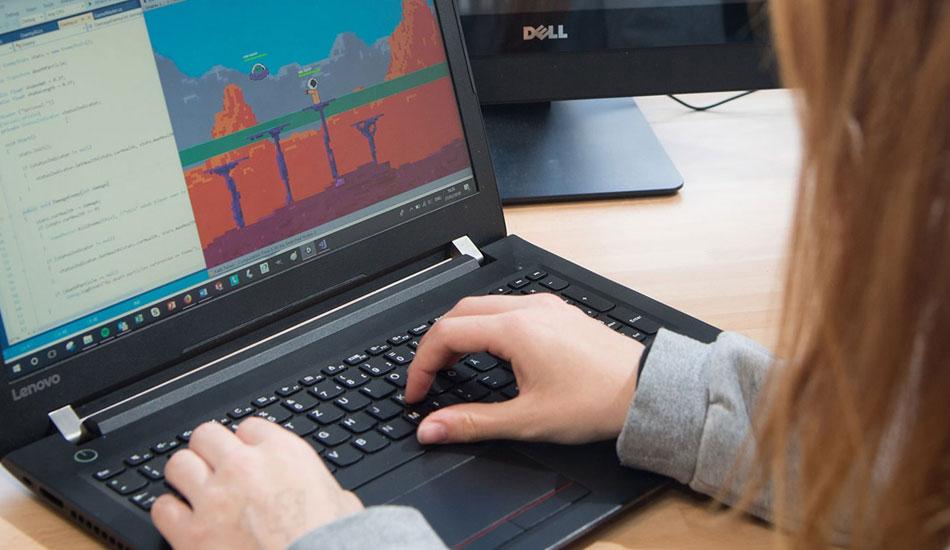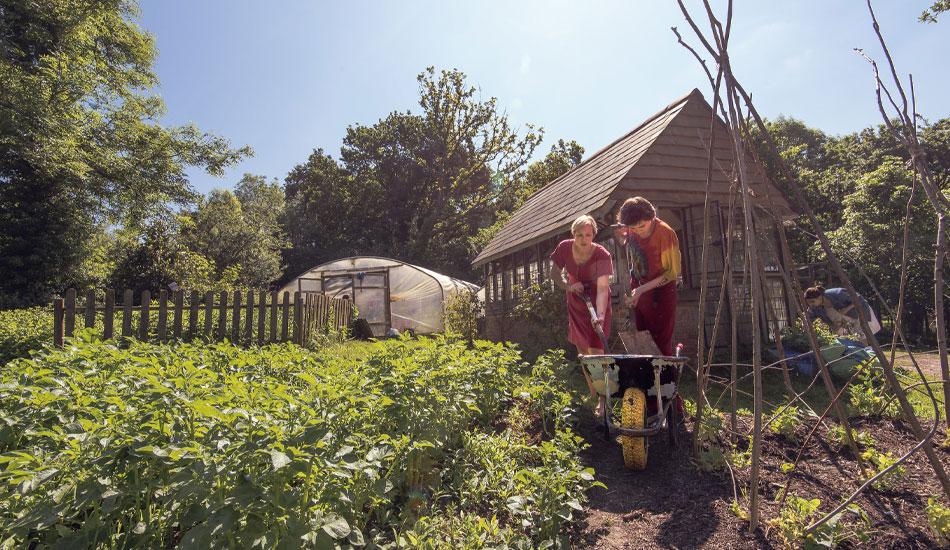
Learn more about Bedales' innovative approach; read case studies of five Bedales Assessed Courses (BACs) below.
- English Literature
- Philosophy, Religion and Ethics
- Global Perspectives
- Digital Game Design
- Outdoor Work
The English Literature BAC provides greater stimulus for imaginative students than the narrow GCSE syllabus, enabling them to develop and pursue a wider interest in literature, and preparing them fully for A Level study and higher education.
Most Bedales students would have encountered the GCSE set texts in Years 7 or 8. Our BAC students study eight texts compared with just three for GCSE. Our course covers pre-1900 and post-1900 prose, poetry and drama, with recent texts including Ibsen’s Hedda Gabler, James’s The Turn of the Screw, David Hare’s Racing Demon, and poetry by Daljit Nagra and Simon Armitage – both of whom have visited Bedales to read their work.
As well as an exam at the end of each year, each student’s best four completed essays count for final assessment – as with most arts and humanities degrees. There is also an oral presentation, or viva, on a chosen topic, that students take at the end of the year.
The English Literature Bedales Assessed Course teaches students skills that they will need in an ever changing world; we go far beyond the restraints of the ordinary GCSE curriculum
David Anson, Head of English
The criticism and context that we applied in our essays was mostly independent work, achieved by researching online, which was beneficial because A Levels also have an emphasis on independent research
Berit, 6.2 (Year 13) student
The scope of the Philosophy, Religion & Ethics BAC stretches far beyond the narrow confines of the Religious Studies GCSE.
In the ‘Jesus in Art’ module, students choose two artistic depictions of an event in the life of Christ, drawing on differences in symbolism, and consequently different theological emphases in the artworks. Later in the course, students learn about philosophy, and in response must create something – be it a play, a poem, a story, a painting, or a game – that reflects the topic. Recent projects include a retelling of the Turing Test, to see if audience members could tell which piece of music was written by a machine and which by Artificial Intelligence; and a split-screen video of the life of a student, and of the Outdoor Work pigs, which provoked brilliant discussions over JS Mill’s claim that it is better to be a dissatisfied philosopher than a pig satisfied.
The culmination of the course is our Utopia Project, an independent learning project in which students are given carte blanche (though with plenty of guidance and set texts) to create their vision for a perfect society, covering everything from government to education, ethics, views on freedom of citizens and a vision of happiness. This is quite unlike any course available elsewhere.
The Global Perspectives BAC was introduced as a response to a growing desire from students to study and respond to global issues not addressed through more traditional subjects. The course sees students develop 21st century skills such as analytical and evaluative research, collaborative project work and presentation skills, bringing together elements of anthropology, economics, law and sociology in focusing on topics such as the application of human rights, the status of first peoples, the global arms race and the perceived failure of the UN Genocide Convention.
Students are introduced to the concepts of social innovation and entrepreneurship before embarking on two projects in which they are expected to design a response to a global issue. Such projects have led to school initiatives providing community service opportunities, charitable initiatives across the world and links to a number of global institutions.
Students are assessed in a variety of ways across the two year course, including exam and coursework, and a final assessment for which students use the skills they have gained on the course to write a response to what they consider to be the biggest global threat in the 21st century.
The Global Perspectives BAC shines a light on the brilliant type of education the BACs offer. We all need to learn more about the world in which we live and this is exactly what the Global Perspectives BAC does.
Emilia, 6.2 (Year 13) student
The Digital Game Design BAC was introduced in 2019, and is highly distinctive in that it embraces the technical, creative and entrepreneurial aspects of game development. In contrast, computer science teaching at GCSE and A Level tends to be narrowly based around maths and coding. As such, we considered it too reductive, out of step with industry thinking and lacking when it comes to game design.
The UK has a strong games industry, which tends to recruit on the basis of the applicant’s portfolio rather than any paper qualification. Led by a computer scientist/physicist and an English teacher, the course sees students pursue the computational aspects of game design; entrepreneurship; and, uniquely, aesthetic, narrative and psychological components. A focus on storytelling is perhaps the most distinctive feature of the programme, with pupils considering the increasingly complex nature of games narratives. All games are a learning process, and the designer must make the game satisfying by being both challenging and achievable. Learning on the BAC is heavily play based and emphasises making as well as theory, and students can choose the path that suits them best – applying ideas and concepts to the genres and games that they like.
The Digital Game Design BAC sees students build a portfolio of work that demonstrates their enthusiasms and talents. For assessment, they pursue an independent project – perhaps involving writing code, creating an imaginary world, making digital artwork, designing an app, or writing a case study – including reflection on what they have learned. The result is a body of work that will help them move seamlessly into higher level study or work in the industry, should they so wish.
The Outdoor Work BAC takes place on a traditional farm, and is very different from other courses in that it prioritises and evaluates personal qualities as well as academic abilities.
The first two terms consist of a foundation course, in which all students carry out tasks in the six areas of Outdoor Work: animal husbandry; cookery; construction; horticulture; craft; and conservation. During the final three terms, students apply themselves to a project of their own choosing, either on an individual or a group basis. This could be anything from building a new timber barn, blacksmithing hooks and metal products or growing wheat for bread baking. Essential is that the project contributes something meaningful to the school and estate, and so is real and relevant.
Students keep a visual record of their learning, a journal from their two years which can be presented in any way they choose. They are then assessed in their final term on the skills and knowledge they have learned, the final outcome, motivation, initiative, drive, enthusiasm, independence, teamwork, and ability to deal with setbacks.
The BAC in Outdoor Work incorporates a uniquely holistic approach to learning and development. Much of the project-based learning is self-driven, with teachers and technicians acting as ‘assistants’ to the students, giving them a unique sense of ownership and responsibility – all with a focus on sustainability, stewardship of the land, and entrepreneurial and business skills. These are essential attributes which set our students up for a more fulfilling and satisfying life as they leave us for the wider world.
